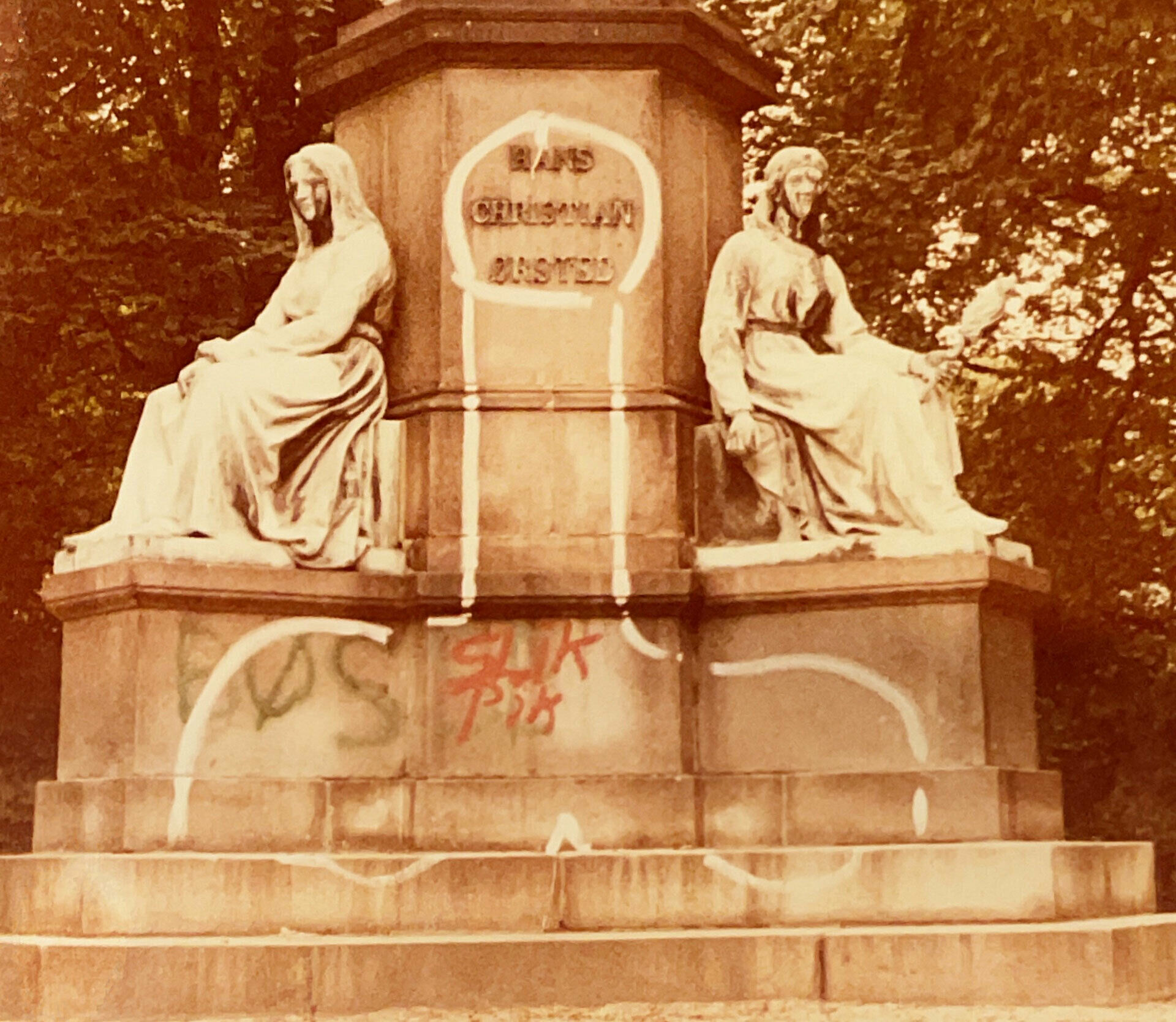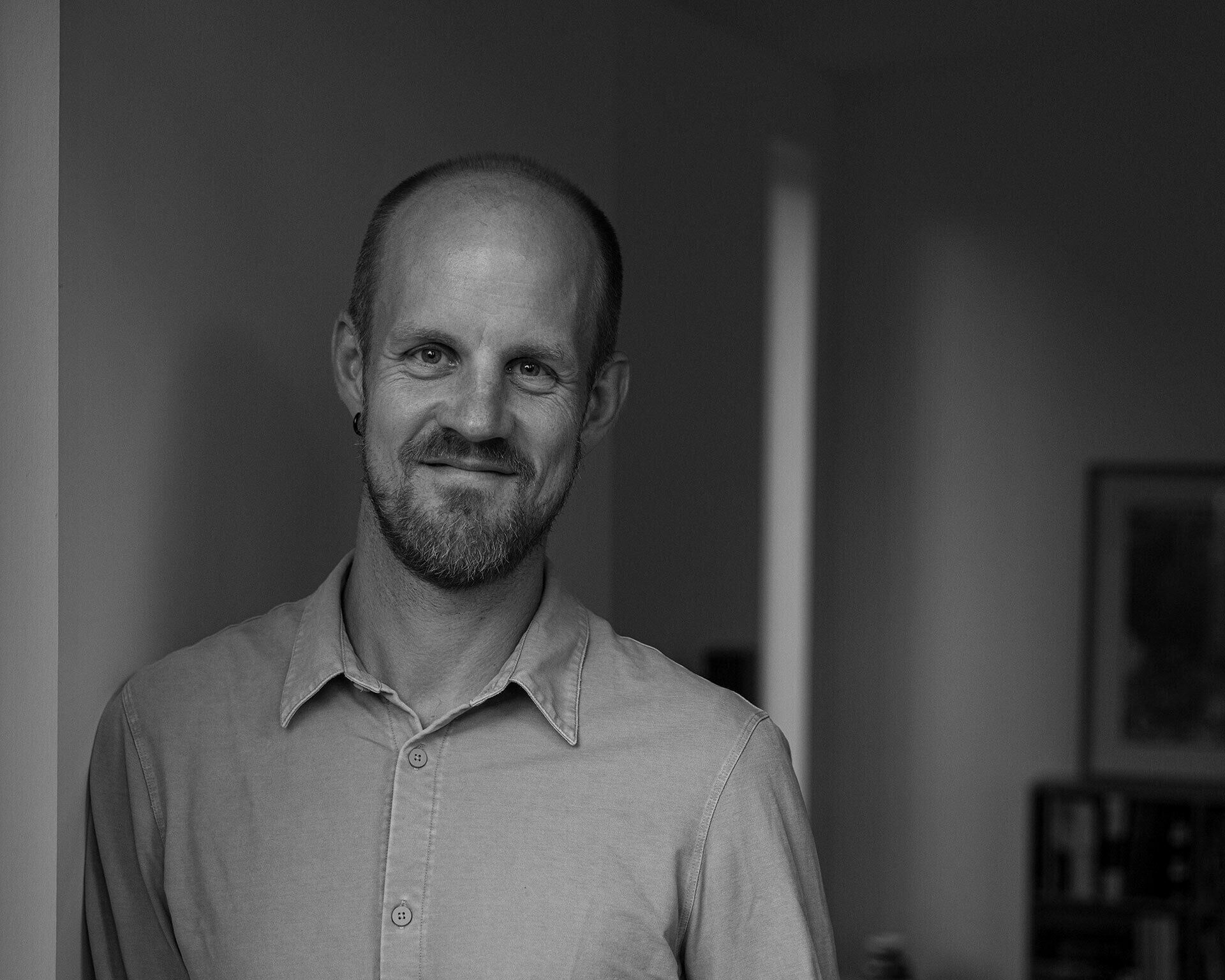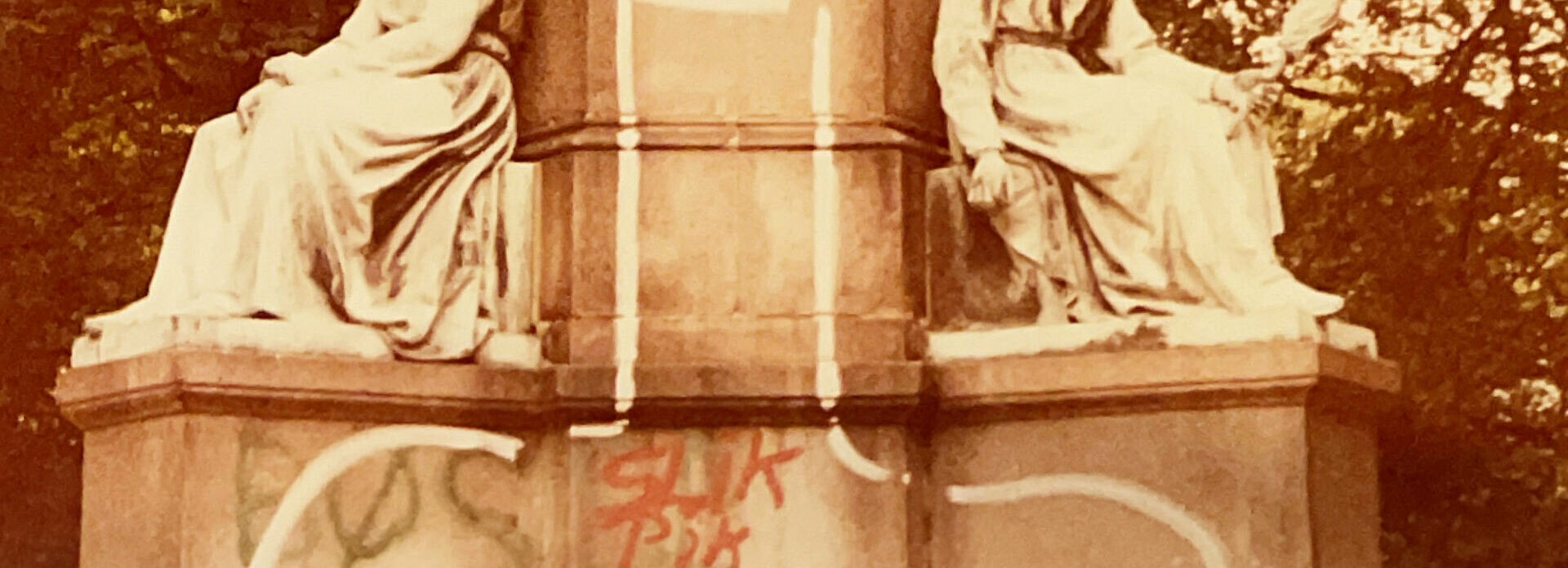I den här föreläsningen diskuterar Danbolt den senaste tidens queera vändning mot minne och minnesarbete genom att fokusera på hur skulpturer och monument i en gay cruising-park i centrala Köpenhamn bär spår av historier om queert motstånd. På engelska.
Tid
Lördag 21 september kl 14:00-15:00
Plats
Södra ljusgården, entréplan
Språk
Engelska
Kostnad
Gratis
Ingen förbokning, begränsat antal platser.
When Ørstedsparken opened in the 1880s, the public was also exposed to a series of fourteen copies of bronze sculptures from Greek and Roman antiquity. Since then, these sculptures have been witnesses and bystanders to more than a century of sexual encounters, homophobic violence, and queer resistance.

Skulptur i Ørstedsparken. Okänd fotograf.
This talk zooms in on a series of interventions in the park in 1984 by the gay activist group Bøssernes Befrielses Front, who painted sexual symbols and gay activist slogans on all the monuments in the park, in order to address how public monuments can function as a surface for public negotiations of gender and sexual norms and practices.
Grafitti on public monuments are often understood as “vandalism” and “defacement”, and therefore immediately removed. Despite the continual renovation of public sculpture that works to secure that their surfaces remain clean and pristine, traces always remain. Drawing on Vaginal Davis’ resistance to “patriarchal forms of governance” and her cultivation of what Robert Summers has called “an aesthetic strategy of whimsy”, this lecture cruises around monuments in public parks in Copenhagen in search for traces of histories of queer resistance and memorialization.
The 45 minutes lecture will be followed by a short conversation about the artist Vaginal Davis and her ongoing Stockholm-exhibitions between Mathias Danbolt and Hendrik Folkerts, curator at Moderna Museet.

Mathias Danbolt. Privat foto.
About the speaker
Mathias Danbolt is Professor of Art History at University of Copenhagen, Denmark. Over the last decade his research has focused on the politics of history and historiography in art and visual culture, with a special focus on queer, feminist, and decolonial perspectives. Danbolt is currently working on the contact zones between art history and colonial history in a Nordic context with an emphasis on memory politics, monuments, and art in public space. His latest publication is the anthology Searvedoaibma: Art and Social Communities in Sápmi (2024), co-edited with Britt Kramvig and Christina Hætta.
Det finns inga kommande händelser
